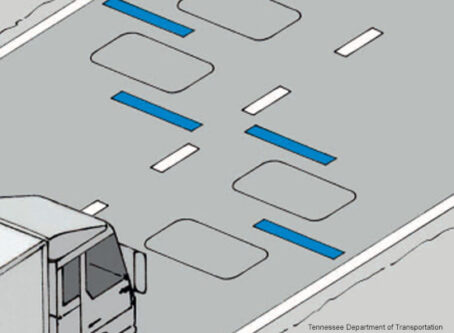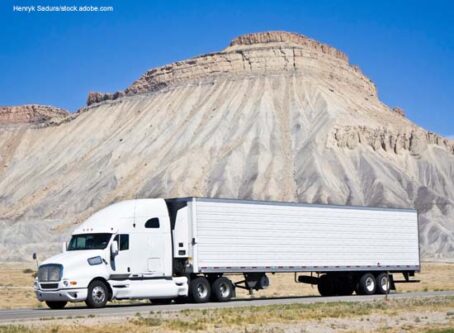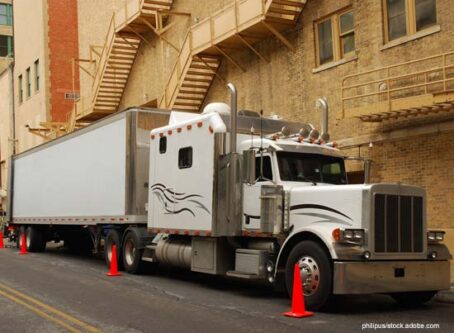Bills in four states would alter speed limits
Elected officials in states from South Dakota to Virginia are discussing possible changes to speed limit rules. Legislators in multiple states are pursuing the enactment of speed limit differentials for cars and trucks.
OOIDA opposes speed limit differentials
The Owner-Operator Independent Drivers Association says roadways are safest when all vehicles are permitted to travel at the same rate of speed. The Association does not advocate for a specific speed limit.
Mike Matousek, OOIDA’s manager of government affairs, says that truckers are firsthand observers of the negative consequences of misguided traffic laws, including differential speed limits.
He adds that differential speed limits create more interactions between cars and trucks, which can lead to an increase in the number and severity of accidents.
“They are also a contributing factor to increased congestion, carbon emissions, and increase inefficiencies with local, regional, and national goods movement,” Matousek has said.
Oklahoma
One Oklahoma state lawmaker is trying again to boost car speeds along turnpikes.
The Sooner State allows cars and trucks to travel at 75 mph on rural four-lane divided highways, including interstates. Speeds along the state’s turnpike system can be set at 80 mph for all vehicles.
A bill from Sen. Rob Standridge, R-Norman, would revise the speed rule. SB1552 specifies the speed limit for motorists traveling on the turnpike system would be increased to 85 mph during daylight hours. Trucks could continue to travel 80 mph – regardless of the time of day.
The change would only be permitted in counties with a population of 150,000 or less.
The Oklahoma Turnpike Authority would be permitted to declare a “special hazard” on any portion of a turnpike included in the affected area. The authority would be required to remove the hazard and restore the 85 mph speed limit for motorists within five years.
Standridge sought a similar change two years ago. His bill passed the House but failed to be considered in the Senate.
This year’s version awaits consideration during the regular session that begins Feb. 3.
South Dakota
Temporary variable speed limits would be used if a bill becomes law.
The state Department of Transportation is again pursuing authorization to set differing speeds along interstate highways, under certain conditions.
The Senate Transportation Committee voted 6-1 to advance the bill.
SB21 reads that differing speeds would be allowed along stretches of interstate for “varying weather conditions, and any other factor that has a bearing on a safe speed.”
David Huft of the South Dakota DOT said the goals are simple.
“The solution we would like to propose is an effective way to reduce crashes, reduce deaths, reduce road closures, and maintain mobility for traffic when conditions are adverse,” Huft testified. “It’s not intended to be a winter speed trap.”
The bill would permit differing speed for different times of day and “different types of vehicles.”
The provision was removed from the 2018 version approved by the House but killed on the Senate floor.
SB21 has moved to the full Senate for additional consideration.
Vermont
If one Vermont state lawmaker gets his way, travel on the state’s fastest highways would be slowed for all vehicles.
Rep. Jim McCullough has introduced a bill to reduce the maximum speed limit on Interstates 89 and 91 from 65 mph to 55 mph.
McCullough earlier this month provided information about the bill to the House Transportation Committee. He highlighted the cost savings for driving at a slower rate of speed.
Data provided to the committee shows that optimal fuel efficiency for vehicles is dependent on travel at 55 mph. Additionally, driving at 60 mph reduces efficiency by 3%, and driving at 65 mph cuts into efficiency by 8%.
In addition to saving fuel, advocates say the lower speed limit would reduce crashes, and help with climate change.
The bill, H627, awaits further consideration in the committee.
Virginia
One House bill would set the maximum speed limit on a stretch of roadway west of Washington, D.C.
Sponsored by Del. Michael Webert, R-Marshall, the bill would set the maximum speed on U.S. 17 between the town of Warrenton and the town of Marshall in Fauquier County. The posted speed for all vehicles now is 55 mph.
HB940 would set speeds for motorists at 55 mph. A slower speed of 45 mph would be imposed for large trucks.
The Virginia DOT would be responsible for positing 12 speed signs along the nine-mile section at a cost of $37,200, according to a fiscal statement attached to the bill.
The bill is in the House Transportation Committee.
(H3) Other recent state coverage:
Left lane law revisions under review coast to coast









